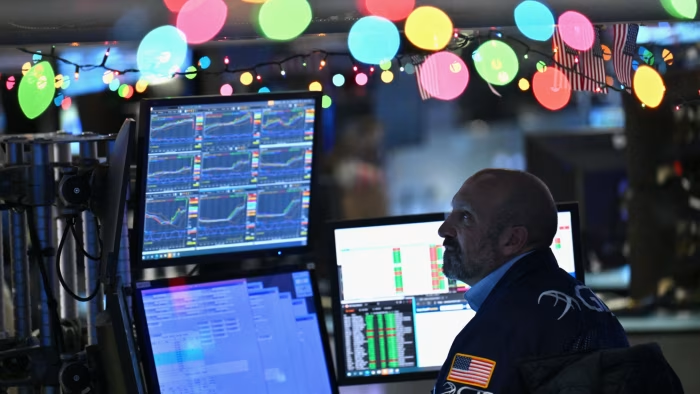Trading can be both exciting and terrifying, especially for those just getting started. As a new trader, it’s easy to get caught up in the allure of quick profits, but it’s just as easy to fall into some common traps. In this article, we’ll take a humorous (but insightful) look at the five biggest mistakes new traders make and how to avoid them. Buckle up, because you’re about to learn the hard way—without actually losing your hard-earned cash.
1. Chasing the Market
Ever feel like the market is running away from you, so you chase it down, only to be slapped in the face by a sudden reversal? Welcome to one of the most common mistakes: chasing the market.
New traders often see a price moving up and think, “I can’t miss out on this!” They jump in, hoping to ride the wave, but forget that by the time they’ve noticed the movement, they’re probably late to the party. The market often reverses, leaving them with a loss instead of a profit.
The key to avoiding this mistake is to have a plan. Don’t just buy because a stock is skyrocketing. Look for solid entry points based on technical analysis or strategy, not emotions. Remember, the market isn’t a hot date you need to chase—it’s more like a slow dance partner you need to anticipate.
2. Ignoring Risk Management
Risk management may not be the sexiest topic, but it’s absolutely essential. One of the biggest pitfalls for new traders is ignoring risk management.
Many traders focus solely on how much money they can make, but they forget to consider how much they could lose. They may put too much capital into a single trade or neglect to set stop-loss orders, thinking, “This trade will work out—I just know it!” Famous last words. Spoiler alert: the market doesn’t care about your optimism.
To avoid this, always set a risk-reward ratio before entering a trade. Stick to it. Use stop-losses religiously, and never risk more than you can afford to lose. Think of risk management like a parachute—sure, you hope you don’t need it, but you’ll be glad it’s there when things go south.
3. Overtrading
Here’s a common rookie mistake: overtrading. New traders often think the more trades they make, the more money they’ll earn. But in reality, overtrading can lead to quick losses and emotional exhaustion.
Overtrading happens when traders try to force trades that aren’t there or take every single small move in the market as a “golden opportunity.” This kind of behavior is driven by greed and fear of missing out (FOMO). Spoiler alert: you’re not going to get rich overnight by trading every second of every day.
The best traders wait for high-probability setups. They trade less but make more thoughtful decisions. Sometimes the best move is to sit on your hands and wait for the right opportunity. It’s like fishing—you don’t catch more fish by throwing the line out constantly; you catch more by being patient and strategic.
4. Failing to Have a Trading Plan
If you think you can just “wing it” in the markets, think again. Failing to have a trading plan is a surefire way to lose money. A solid trading plan outlines your strategy, risk tolerance, and goals. Without it, you’re just gambling.
Many new traders fall into the trap of reacting impulsively to market movements without a clear plan. They may see a big price movement and jump in without thinking about their exit strategy. Trading without a plan is like trying to navigate a foreign country without a map—you’ll end up lost, confused, and likely out of money.
To avoid this mistake, create a detailed trading plan before you even start. Your plan should include when to enter and exit trades, how much you’re willing to risk, and what your long-term goals are. Stick to the plan like glue, and don’t let emotions sway you.
5. Letting Emotions Drive Decisions
The final big mistake is letting emotions drive your trading decisions. Trading is an emotional roller coaster—one minute you’re on top of the world, the next you’re in the depths of despair. New traders often make decisions based on how they feel rather than on sound analysis.
Common emotional pitfalls include panic selling, fear of missing out (FOMO), and revenge trading. “The market took my money, so I’ll show it who’s boss!”—Yeah, the market doesn’t care. Acting on emotions is a quick way to empty your account.
To prevent emotions from ruining your trades, you need to develop discipline. Set strict rules for yourself and follow them, no matter how you feel. If a trade hits your stop-loss, accept the loss and move on. No one wins every time, but the key is to minimize emotional trading mistakes.
Conclusion
New traders often stumble into these five common mistakes, but now that you know what to look out for, you can avoid them. Remember, the market is tricky, and while you can’t control its movements, you can control your actions. By having a solid plan, managing risk, and keeping emotions in check, you’ll be miles ahead of the pack.
So, next time you’re tempted to chase the market or trade based on a hunch, take a step back. Stay calm, stay disciplined, and trade smart. After all, the only thing more dangerous than a volatile market is a trader with no plan.
